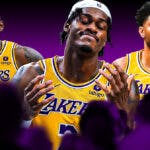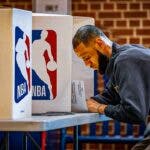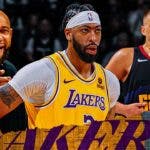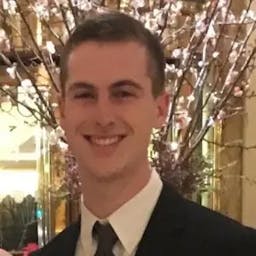The Los Angeles Lakers figure to dominate the headlines this summer after a season full of tumult and front office madness. Lonzo Ball is part of this drama. While new head coach Frank Vogel prepares to try to bring glory back to a franchise that has not made the playoffs since 2013, the Lakers will have a number of decisions to make that could alter the complexion of the team forever.
Los Angeles would ideally like to be a major player in the Anthony Davis sweepstakes, but the New Orleans Pelicans do not figure to trade Davis to a potential Western Conference contender. Still, the Lakers have a max slot available in free agency, and LeBron James has reportedly reached out to Kawhi Leonard and Jimmy Butler about their interest in joining him.
Yet another development: The Lakers acquired the rights to the No. 4 selection in the 2019 NBA Draft. Los Angeles has a number of options, but it might also try to acquire even more first-round selections in exchange for Lonzo Ball.
In his two years with the Lakers, Ball has shown glimpses of the potential he seemed to promise as the No. 2 pick in 2017, but he has also dealt with a multitude of injuries, and his jump shot continues to be a question mark.
Teams with a need at point guard–namely the Chicago Bulls and Phoenix Suns–have already made inquiries on Ball's availability.
The Lakers do not have to look very far into the past to see why trading Ball now would be a colossal mistake.
Ghosts of point guards past
Not too long ago, the Lakers gave the keys to a young point guard out of Ohio State: D'Angelo Russell. The mercurial Russell played decently in Los Angeles, but failed to make an expected leap in his second season and was promptly traded to the Brooklyn Nets.
Magic Johnson even criticized Russell for lacking leadership qualities and not making other players around him better. After all, Russell averaged only as high as 4.8 assists in his sophomore season, and seemed to be a more ball-dominant point guard intent on creating his own shot.
Johnson's assessment of Russell could not have been more invalid. Russell had the best season of his career with the Brooklyn Nets this year, averaging 21.1 points, 7.0 assists and 3.9 rebounds while making his first All-Star team. Consequently, the Nets made a surprising run to the playoffs as the Lakers disintegrated.
When players have the upside Russell or Ball promise, they might need more than just two years to realize their full potential. Had Russell not shown the capability to be a tremendous scorer in crunch-time?
If the Lakers continue to double down on trading their young talent, they will have no future. James is still in Los Angeles for three more years, and he is still elite, but his prime is over. The Lakers still need to have a strong core when he leaves. Lonzo can be a focal point of that core.
All-around talent
Russell and Ball are two very different players. Russell is one of the better scoring guards in the league, and his perimeter shooting and efficiency continue to improve.
Lonzo, on the other hand, is an elite perimeter defender. He could average over two steals per game, and has proven to be kryptonite for smaller, elite shooting point guards such as Stephen Curry. Given that the Lakers already lack defensive playmakers, why would they want to trade another one?
Similarly, Lonzo has elite court vision. He averaged 7.2 assists in his rookie season, and still put up 5.4 last year despite playing off the ball for a majority of offensive possessions. He is a legitimate threat to post 10.0 assists per game, and even if those numbers do not show up immediately, he has a tendency to make the right basketball play.
As for the shooting, of course there is room to grow, but Ball shot nearly 33 percent from deep this season, which is a respectable number in line with Russell's percentages in the first few years of his career.
Lonzo's tremendous size and athleticism make him a rarity at point guard. Factor in his upside as an offensive and defensive playmaker, and the Lakers would make a huge mistake in trading him under three years into his career.




